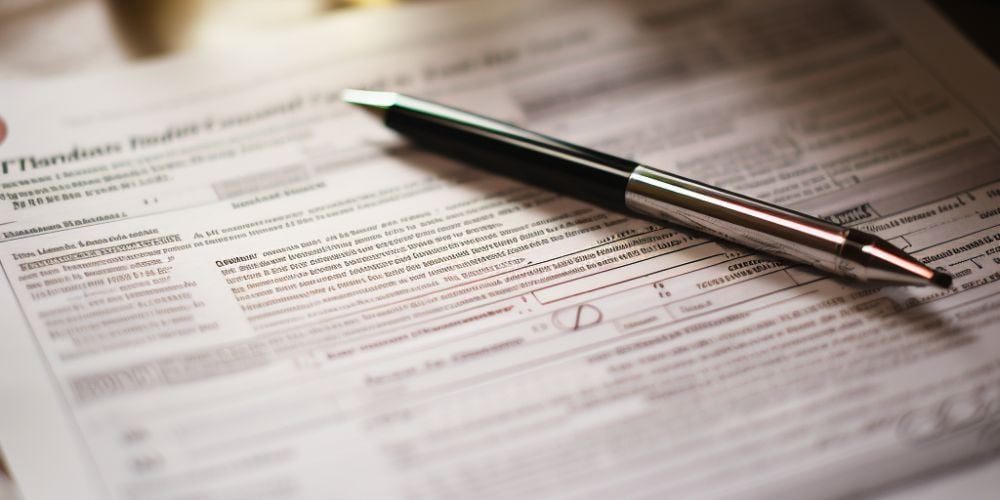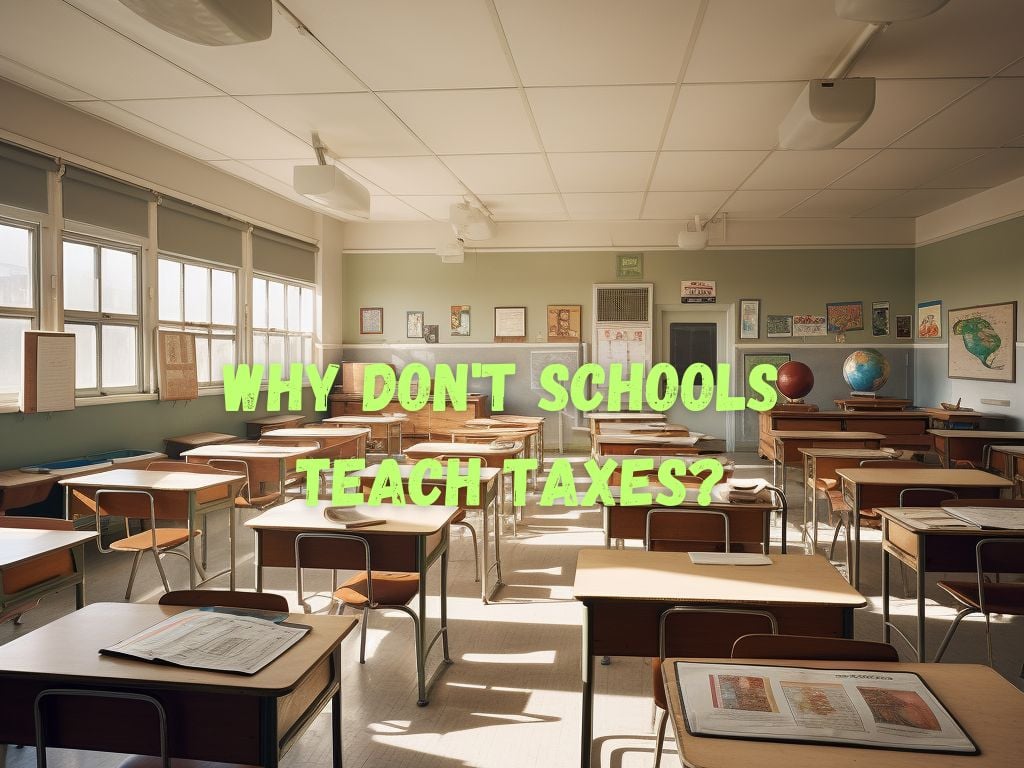In today’s complex and interconnected world, financial literacy plays a crucial role in shaping individuals’ lives.
Yet, a significant knowledge gap persists in our education system – schools often fail to teach students about taxes.
So, why don’t schools teach taxes?
This article delves into the reasons behind this omission, and examines the impact it has on individuals’ financial literacy.
Why Don’t Schools Teach Taxes? (Top Reasons Discussed)
Complexity of the Tax System
The tax system can be highly complex, with various tax laws, regulations, and forms. Teaching such complexity can be challenging for educators who may not have specialized tax knowledge.
Tax laws are subject to frequent changes, making it difficult to provide consistent and up-to-date teaching resources.
Some educators may lack the necessary training and expertise in tax education, further deterring them from teaching the subject
Lack of Funding and Resources
Many schools operate under tight budgets, with financial education often not being prioritized. This lack of funding can limit the availability of resources, textbooks, and instructional materials needed to teach tax education effectively.
Without sufficient funding, schools may struggle to hire qualified teachers or provide necessary training in tax education.

Emphasis on Standardized Testing and Core Subjects
Schools and students often face pressure to excel in standardized tests, placing a greater focus on core subjects such as math, English, and science.
This emphasis on tested subjects can result in less time and attention dedicated to non-tested subjects like tax education.
Tax education is not seen as a core subject and may be perceived as less important in the eyes of educators and policymakers.
Limited Time and Curriculum Constraints
Schools already have a limited amount of time to cover essential subjects.
Teaching tax education may not be prioritized due to the competing demands of other necessary subjects.
Taxation is a complex topic that would requires significant instructional time to cover thoroughly. With limited time available, schools often prioritize subjects that are required for graduation.
Consequences of Not Teaching Taxes in Schools
Financial Consequences for Individuals
Lacking basic knowledge of taxes can have significant financial consequences for individuals.
Without understanding how taxes work, students may struggle to navigate the financial responsibilities and obligations they will face as adults.
This lack of understanding can lead to costly mistakes, such as incorrect filing or missed deductions, that can negatively impact their financial well-being.
Impact on Economic Growth and Society as a Whole
Financially literate individuals make informed economic decisions and contribute positively to the overall economy.
The absence of tax education may lead to a large segment of the population lacking financial literacy, hindering economic growth.
A lack of understanding of taxes can also result in a lack of engagement in the political and democratic process.
Taxes play a crucial role in funding government programs, infrastructure, and public institutions.
Lack of understanding can lead to inadequate funding and support for these essential services.
Compromised National and Financial Security:
A lack of tax knowledge can hinder the government’s ability to detect and prevent tax evasion, which can undermine tax revenue and national financial stability.
Lack of tax education can lead to a lack of financial transparency, making it easier for illicit activities to go undetected, potentially compromising national security.

Arguments for Integrating Tax Education in Schools
Empowering Individuals with Financial Knowledge
Integrating tax education within the curriculum empowers individuals to take control of their financial lives.
By providing students with a solid foundation in tax literacy, we equip them with the tools needed to make informed financial decisions and plan for their financial futures.
Preparing Students for Real-World Responsibilities
Knowledge of taxes is a practical life skill that all individuals will encounter as they enter the workforce and contribute to society.
By teaching taxes in schools, we prepare students for real-world responsibilities, ensuring they are well-equipped to navigate the complexities of the tax system once they become taxpayers.
Promoting Informed Citizenship
Taxation is a fundamental aspect of citizenship. By educating students about taxes, we foster an understanding of the social and economic impact of taxation.
This knowledge promotes active and informed citizenship, enabling individuals to participate in discussions surrounding tax policies and advocate for changes that align with their values.
Addressing the Challenges and Potential Solutions
Implementing Financial Literacy Programs
To address the absence of tax education in schools, implementing robust financial literacy programs is crucial.
Such programs can be designed to cover a range of financial topics, including taxes, budgeting, and personal finance, ensuring students receive a well-rounded education in financial matters.
Collaborating with Tax Professionals and Experts
Schools can forge partnerships with tax professionals and experts in the field to enhance tax education.
Guest lectures, workshops, and mentoring programs can provide students with practical insights and real-world examples, making tax education more engaging and relevant.
Advocacy for Policy Changes and Curriculum Updates
Advocacy plays a vital role in promoting tax education.
Engaging with policymakers, education boards, and school administrators to highlight the importance of tax education can lead to policy changes and updates to the curriculum.
By raising awareness of the benefits and potential solutions, we can push for the integration of tax education into schools.

The Role of Parents and Communities in Tax Education
Encouraging Financial Conversations at Home
Parents and caregivers can emphasize the importance of responsible financial behavior by having regular conversations with children about money management, savings, and taxes.
Encouraging children to save money from an early age and involving them in financial decision-making can foster financial literacy and create a foundation for understanding taxes.
Supporting Initiatives for Tax Education in Schools
Parents can actively participate in PTAs and school boards to advocate for the inclusion and prioritization of tax education in the curriculum.
Communities and non-governmental organizations can provide resources, guest speakers, materials, or volunteers to help schools teach students about taxes effectively.
Tax professionals can volunteer their time as mentors, guest speakers, or assist in developing tax education programs in schools.
Providing Financial Education Resources:
Communities can establish tax help centers or online toolkits that offer free tax education resources, including explanations of tax concepts, guidelines for filing returns, and information on financial planning.
Local libraries and community centers can offer tax preparation software and organize workshops or seminars on tax education to improve financial literacy.
Frequently Asked Questions about Tax Education in Schools
Why don’t schools teach students how to file taxes?
Schools often prioritize core subjects and standardized testing, leaving practical life skills like tax education overlooked. Additionally, the complexity of the tax system and limited resources contribute to this omission.
Should students be taught how to do taxes?
Yes, teaching students how to do taxes is crucial for their financial literacy. Understanding taxes prepares them for real-world responsibilities and enables them to make informed financial decisions.
What are the benefits of teaching taxes in schools?
Teaching taxes in schools empowers individuals with financial knowledge, prepares them for their future financial responsibilities, and promotes informed citizenship.

Conclusion
The absence of tax education in schools highlights an essential gap in our education system.
By understanding the reasons behind this omission and its consequences, we can work toward change.
Integrating tax education in schools equips students with the necessary skills to navigate the tax system, make informed financial decisions, and contribute to a more financially literate society.
Let us advocate for change, empowering future generations to thrive in their financial lives.


 Tags:
Tags:










